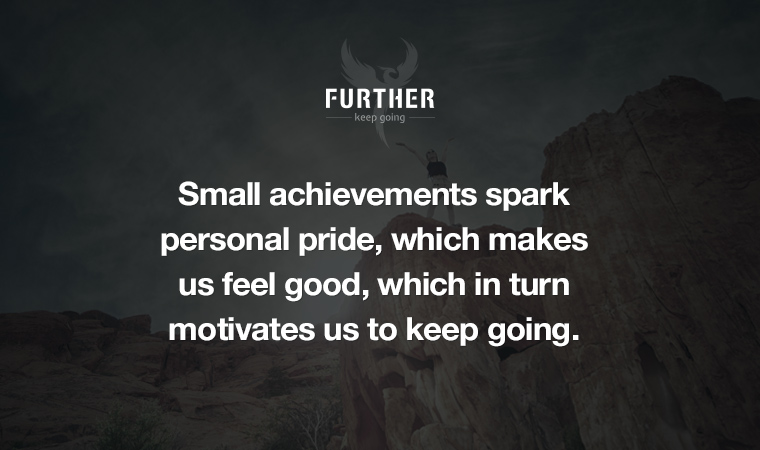
I have a confession to make.
For as long as I can remember, I’ve chewed my fingernails. It started as a nervous habit when I was young, and then morphed into an undesirable grooming ritual.
In other words, I became so skilled at chewing my nails that I could trim them with my teeth and they’d look somewhat acceptable. Gross, I know.
And then one day not long ago while I was “trimming” my thumbnail, I managed to rip off a big chunk of cuticle. Blood, pain, the whole deal.
At that point, I resolved to stop chewing my nails until they grew out a bit. Through mindful willpower alone, I managed to do it.
Then came the next step. I asked my wife to schedule my first ever manicure.
My thought was that if I started paying to maintain my nails, I wouldn’t chew them. And it worked, but not for the monetary reason.
What happened was the manicure made my fingers look really nice for the first time. The manicurist even said that — other than the chewing — I had really healthy, attractive nails.
Suddenly, I was proud of my fingernails. And even though that’s something I had never aspired to, it made all the difference.
I’ve never chewed my nails since; not even a single close call. And it’s because I now take pride in properly caring for them.
Pride Creates Powerful Moments
This small experience of pride helped me defeat my nasty ungual habit, and it immediately made sense to me. Just a few weeks earlier, I had read The Power of Moments: Why Certain Experiences Have Extraordinary Impact by Chip and Dan Heath.
The book explores why certain brief experiences can jolt us into change, and how we can learn to intentionally create extraordinary moments in our lives. The bestselling brothers identify four categories of such moments — elevation, insight, connection, and pride.
Is it normal for a single instance of pride to eliminate a bad habit? Probably not — breaking habits related to nicotine, alcohol, and Krispy Kreme would likely require a more gradual process.
That’s even more the case with developing new, beneficial habits. After all, how many times do people lose ten pounds, feel great about themselves, and then backslide to their former weight?
It all comes back to the difference between goals and habits. We may experience pride when we accomplish a goal, but a true habit allows for sustainable personal improvement.
So how do we use the power of pride to build beneficial habits that also lead to goal attainment? The key is to consciously create milestones that allow for moments of pride along the path.
If you’ve paid attention to the mountains of advice about forming new habits, you’ve heard people discuss continuous improvement, incremental change, and developing micro-habits (here’s a piece that touches on all three).
And yet, I don’t recall anyone before the Heath brothers pointing to pride as the primary psychological mechanism for why the “small steps” approach works.
Incremental change is generally billed as easier than tackling a huge goal all at once. It’s the “eat the elephant one bite at a time” argument. But that’s still thinking in terms of end goals, not habit creation.
The psychology behind meaningful moments goes deeper than “easier” when it comes to consciously creating incremental milestones. Each small achievement sparks an instance of personal pride, which makes us feel good, which in turn motivates us to keep going.
It’s this positive perseverance over time that leads to a new habit being formed. And then, that new habit can take you as far as you’d like to go.
Pride Boosts Performance in the Pursuit of Personal Excellence
Vanity and pride are different things, though the words are often used synonymously. A person may be proud without being vain. Pride relates more to our opinion of ourselves, vanity to what we would have others think of us. ~ Jane Austen
The Power of Moments cites another book for a fun approach to habit creation — Level Up Your Life: How to Unlock Adventure and Happiness by Becoming the Hero of Your Own Story by Steve Kamb. Basically, Kamb advocates that you treat personal growth like a video game, celebrating each new level attained on the path to “winning” the game.
This ingenious level-up strategy multiplies the number of motivating milestones on the way to achieving a goal. That way, you’re constantly anticipating moments of pride, while also transforming an ambiguous goal into a concrete set of steps.
Thing is, embracing the process this way might lead you to ultimately decide that there is no destination, and no end to the game. It’s just something you love to do. More importantly, you learn to ignore external rewards in favor of the intrinsic satisfaction that simply doing things well brings.
For example, most people who complete a marathon will finish in 3.5 to 5 hours. An examination of the completion times of more than nine million runners shows a dramatic spike at the 4-hour mark.
This is a demonstration of a pride milestone. Exhausted runners see both the finish line and the 4-hour mark approaching, so they turn on the afterburners to get in under the mark.
In reality, it’s completely arbitrary — there’s no special prize that others don’t get if they finish in 4:01. But it’s not about others; it’s only about a sense of personal achievement. And that’s when motivation truly becomes intrinsic.
That’s the type of motivation it takes to commit to deliberate practice that leads to the achievement of excellence. That level of commitment doesn’t come from wanting to please others, it comes from the personal satisfaction you get from getting incrementally better.
Pride isn’t a dirty word. As long as it’s an aspect of your own self esteem, that is, and not to appear a certain way to others.
